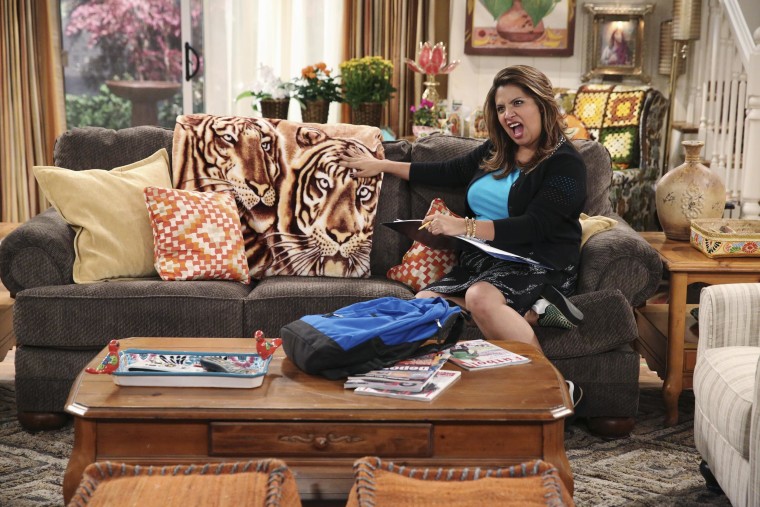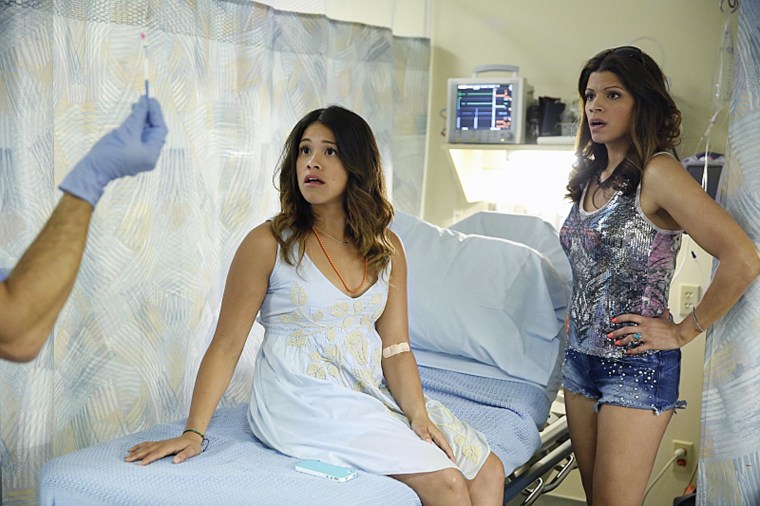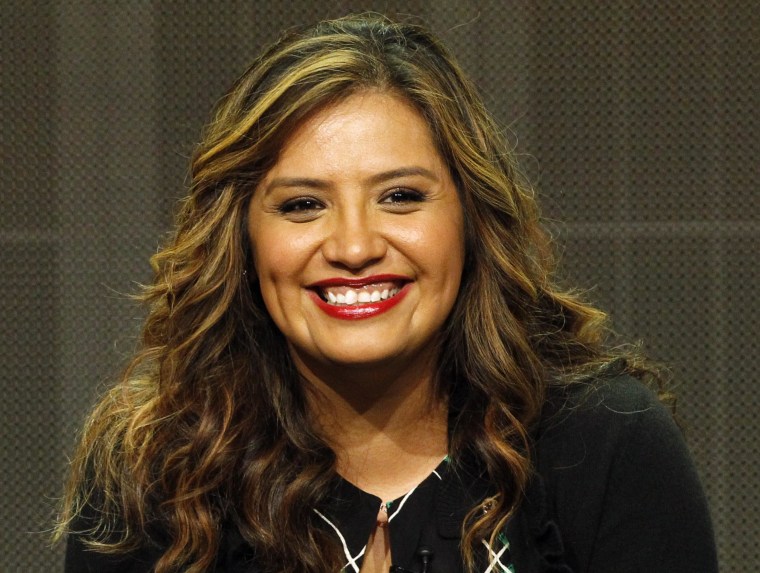One of comic Cristela Alonzo’s oldest jokes involves being a child and her Mexican immigrant mother pointing to a big, fancy house and saying: “Cristela, you’re an American. You go to school, you work hard, you graduate, you make something out of yourself. And one day, you can clean that house.”
On Friday, when ABC viewers hear a clipped version of it on Alonzo’s new sitcom “Cristela,” it will make TV history. The 35-year-old virtually unknown comic is the first Latina to create, produce, write, and star in her own primetime comedy.
“No one else has a deal like this,” said Alex Nogales, president of the National Hispanic Media Coalition. “It is very, very significant and it calls to the fact that she’s an exceptional artist.”

In the past decade, other Latinas have broken important ground in popular TV comedies — Eva Longoria on “Desperate Housewives,” America Ferrera on “Ugly Betty” and Sofia Vergara on “Modern Family” — but the autobiographical "Cristela" makes Alonzo'sMexican-American family the focus of the show.
“Cristela” draws on Alonzo's experiences as the youngest of four growing up in San Juan, Texas, a border town. Alonzo spent the first eight years of her life squatting with her siblings and mother in an abandoned diner, where she passed time watching television because she wasn't allowed to play outside in the crime-ridden neighborhood.
On her show, she plays an aspiring lawyer who moves in with her family while she finishes law school, a goal her family does not comprehend the same way Alonzo's real family didn't understand her dream of becoming a performer. Relying largely on her wit and charm, "Cristela" is already being compared to early seasons of “Roseanne” —a sitcom revolving around a working class family with a female lead whose perspective is sharp and fresh.
“Cristela”'s arrival is timely both in the context of the standing of Latinos in the nation as well as in the TV landscape. According to the U.S. census, Latinos make up 17.5 percent of the population, and the group’s buying power has reached $1.3 trillion.
“What that shows is that we’re the best kept secret in America,” Nogales said. “Even though the new crop of entertainment presidents at NBC, Fox, CBS and ABC want us to be a part of what they do, they don’t know where to find us. That’s why we — the advocacy groups and civil rights organizations — that deal in this are reminding them and pushing them.”
“Cristela”'s main cast is Latino, which could present the same challenges other Latino-centric shows have faced as they tried to attract a broad audience. "The George Lopez Show," which ran on ABC from 2002 to 2007, struggled with balancing cultural identity and tokenism. "Ugly Betty," by contrast, featured a Mexican-American family but did not focus its stories on the family's ethnicity and managed to attract a mixed audience.
In the first episode of “Cristela,” there are plenty of Old World jokes — her mother used to get her water from a well in Mexico when she was growing up — but also authentic observations about assimilation. When her bosses’ daughter confuses Cristela for a valet driver, she retorts: “You’ve been validated enough.”
“Up until this point in time, both the Latino audience and non-Latinos tend to respond more supportively when the show features Latinos in different settings,” said Frances Negron-Mutaner, director of the Center for Study of Ethnicity and Race at Columbia University, who released a report in June condemning the lack of consistent and accurate portrayals of Latinos in entertainment and media.
“And the reason for that is that the Latino population is not homogeneous either in ethnicity, migration history, or class, therefore it’s hard to come up with a storyline that speaks to the enormous diversity when you have to be specific,” she said. “When Latinos feel a show is only being targeted at them, it’s an exclusionary proposition.”
Although the Columbia University study found that Latinos are still grossly underrepresented in entertainment, it also revealed a rise in the visibility and recognition of Latinas in entertainment over the last 15 years.
In comedies, especially, Negron-Mutaner noted, it is encouraging that Latinas are beginning to break out of the typical roles ascribed to them. Sofia Vergara, the highest-paid actress on television, has earned four Emmy nominations exaggerating her accent and beauty for laughs, but there are other Latinas on TV whose ethnicity never comes up — such as Stephanie Beatriz and Melissa Fumero of Fox’s “Brooklyn Nine-Nine” and Gina Rodriguez on the CW's upcoming “Jane the Virgin," one of the most promising shows of the new season.

“It’s very striking the lack of imagination that the entertainment industry has when it comes to imagining Latinos,” Negron-Mutaner said. “When Latinos are the subject of comedy, it’s often because their accents are exaggerated or they’re not real Americans. ‘Cristela’ seems to be investing in witty humor, intellectual humor, which is a shift because generally for Latinos in comedy, the humor is more physical and there’s a lot of screaming.”
For that reason, Alonzo has said her goal is to craft stories showcasing the family as Americans who are like everyone else.
“The character in the show is very much who I am in person and I just want to show people the real me because, when you try to pretend that you’re someone else, people can tell,” she said at a July press conference for the show. “Everybody in this show is based on someone I know and my goal was always to honor them.”

